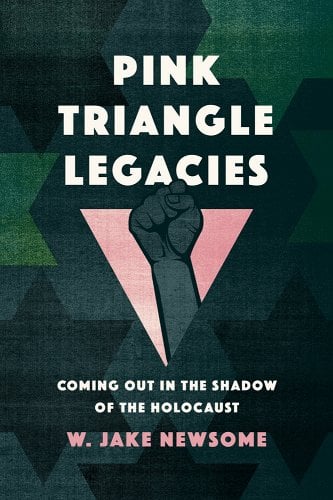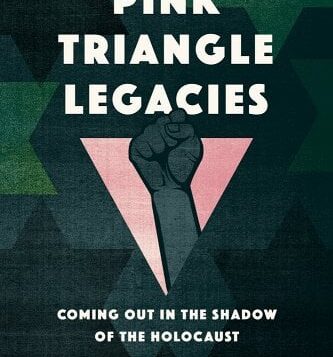 PINK TRIANGLE LEGACIES: Coming Out in the Shadow of the Holocaust
PINK TRIANGLE LEGACIES: Coming Out in the Shadow of the Holocaust
by W. Jake Newsome
Cornell University Press. 304 pages, $34.95
For those interested in the “problems” of queer history, this book is an excellent introduction to the issues associated with confronting queer historical memory. The first chapters tell how the Nazis, using paragraph 175 of the pre-existing German legal code, placed homosexuals in concentration campus, branding them with a pink triangle. The bulk of the book, however, focuses on how the story of the “Pink Holocaust” slowly came out of the shadows and came be accepted as a “legitimate” part of holocaust memory.
Constructing the history of the Pink Holocaust faced numerous obstacle and challenges. Camp survivors, still considered legal prisoners and not released when the camps were liberated, were reluctant to come forward with their stories. They still faced additional persecution under paragraph 175, which wasn’t fully repealed until 1994. Getting the government authorities and the German public to see them not as violators of a criminal statute but as victims of a fascist ideology was another chapter. There was a debate about the numbers, with early accounts putting them in the millions. The actual total was closer to 100,000. There was also a debate over meaning: just exactly what did the pink triangle symbolize? Initially some argued it only applied to gay men; women were not targeted under paragraph 175. In the 1980s, the pink triangle was adopted as a symbol by AIDS activists. Newsome holds up the pink triangle as a universal symbol of the queer resistance, appearing in 23 memorials in nine countries—without acknowledging that many groups now avoid this symbol because of its association with Nazism. That said, it remains a valid tribute to those who suffered and struggled for LGBT freedom.
Fred Fejes








